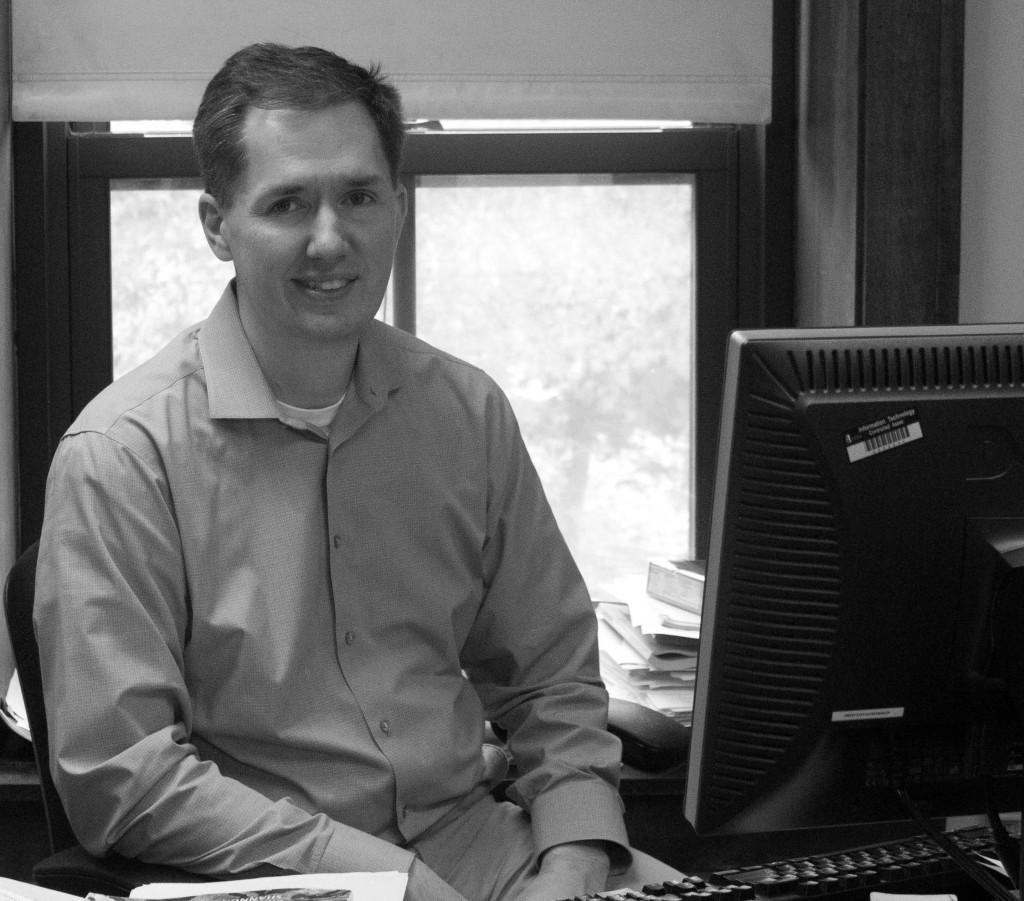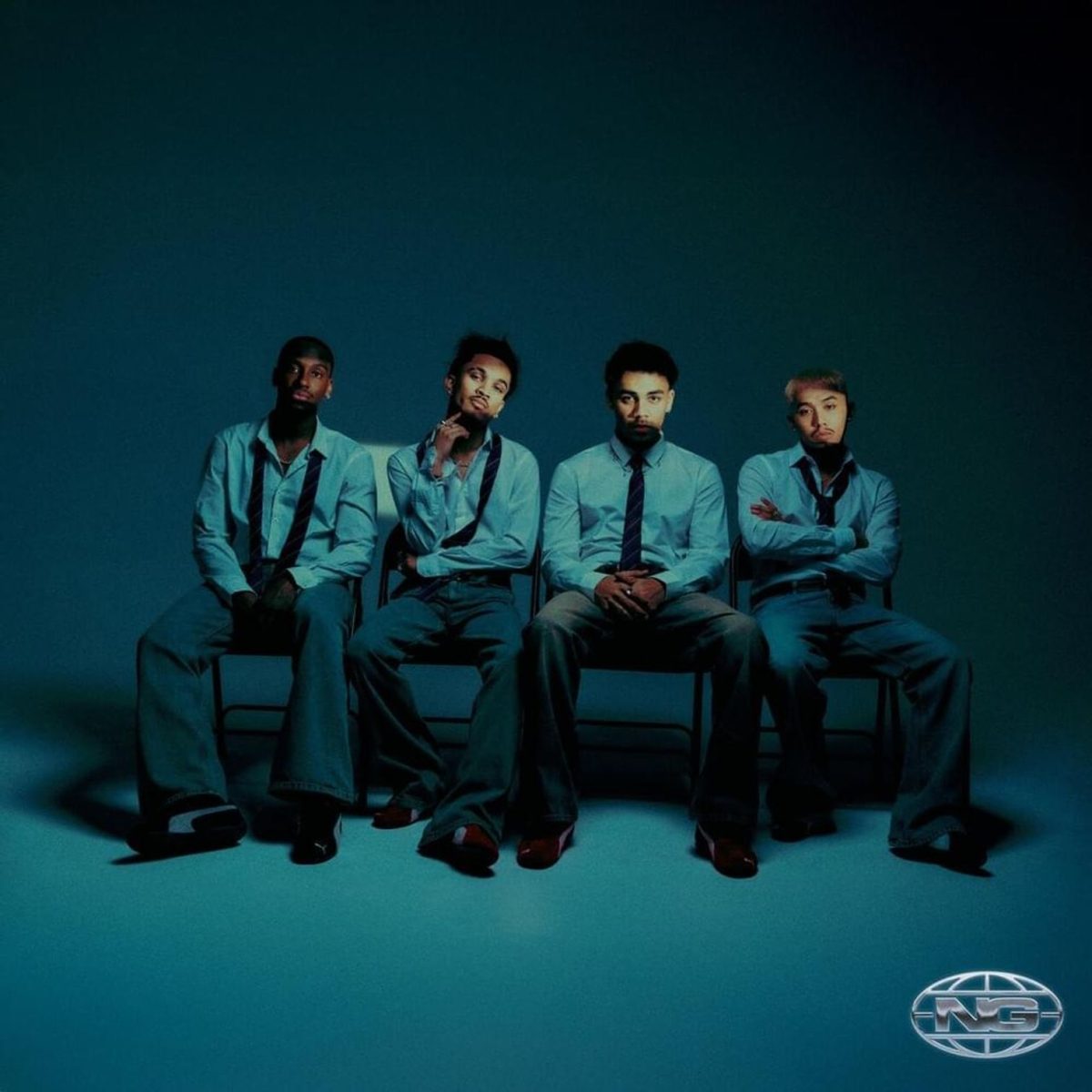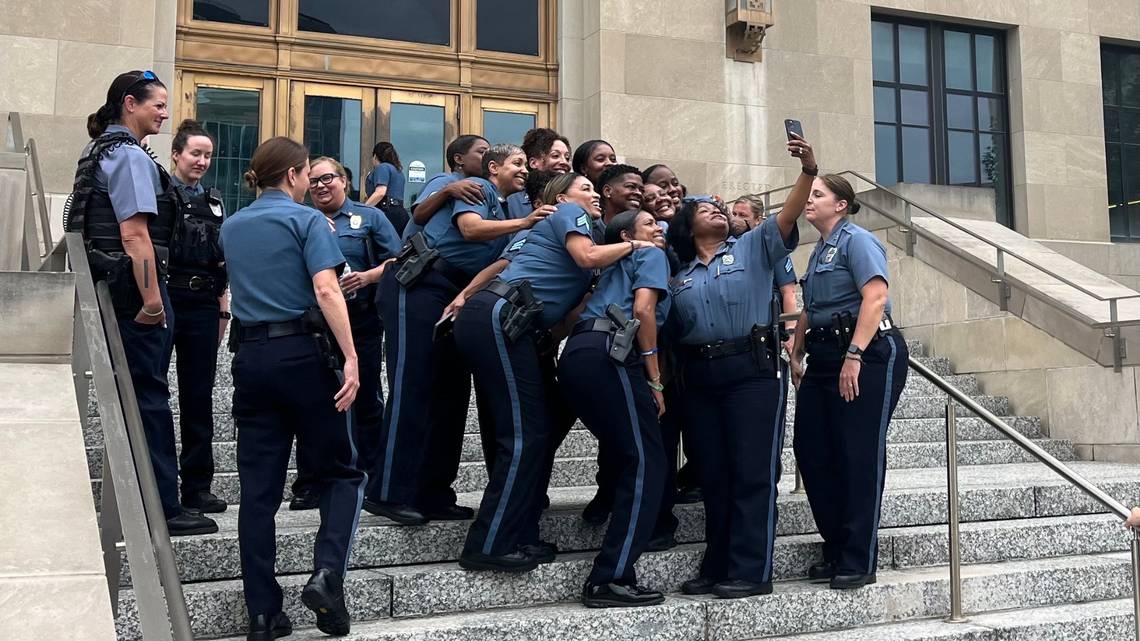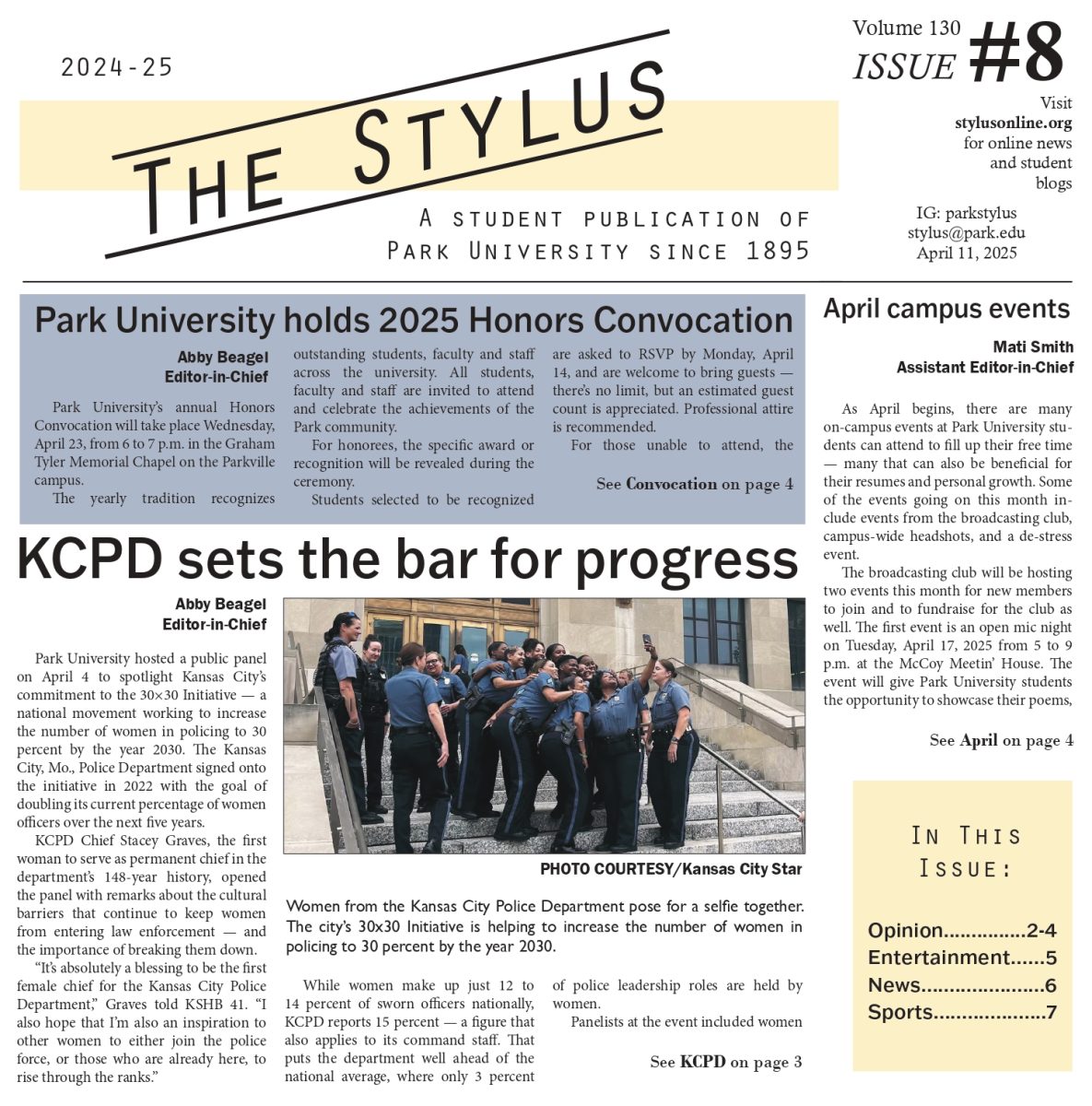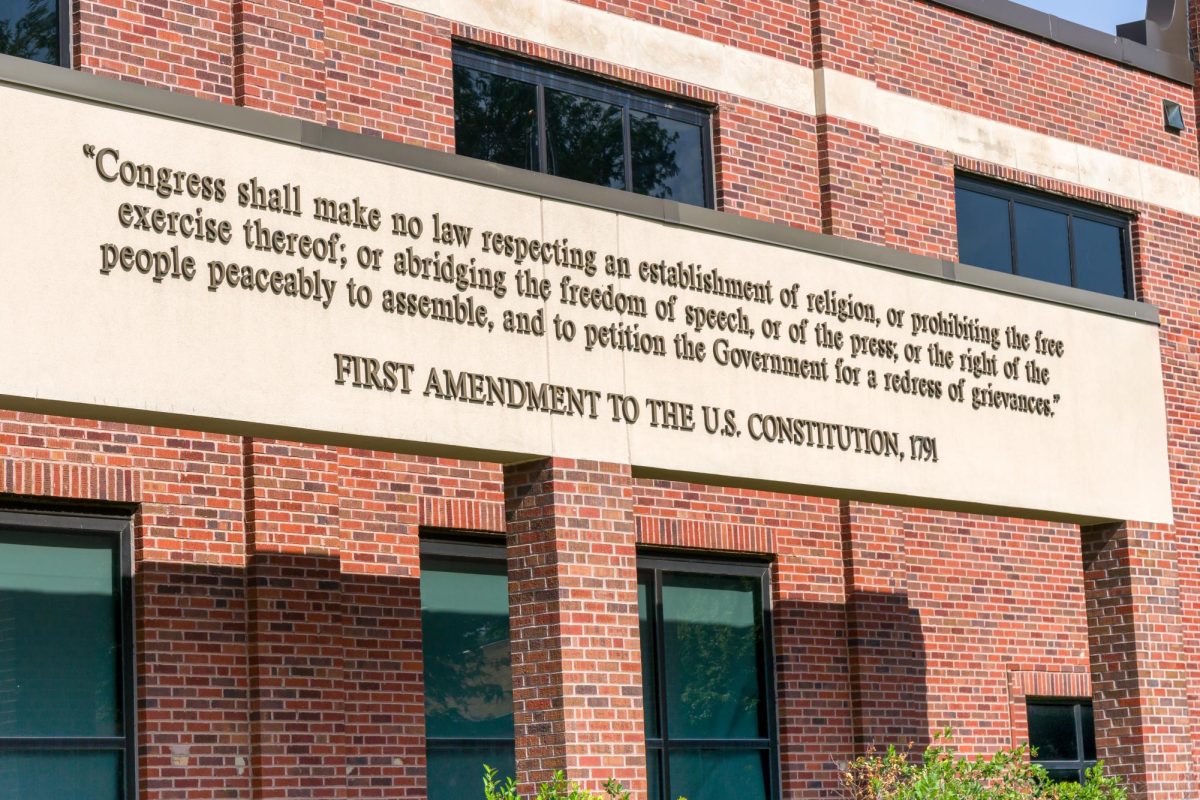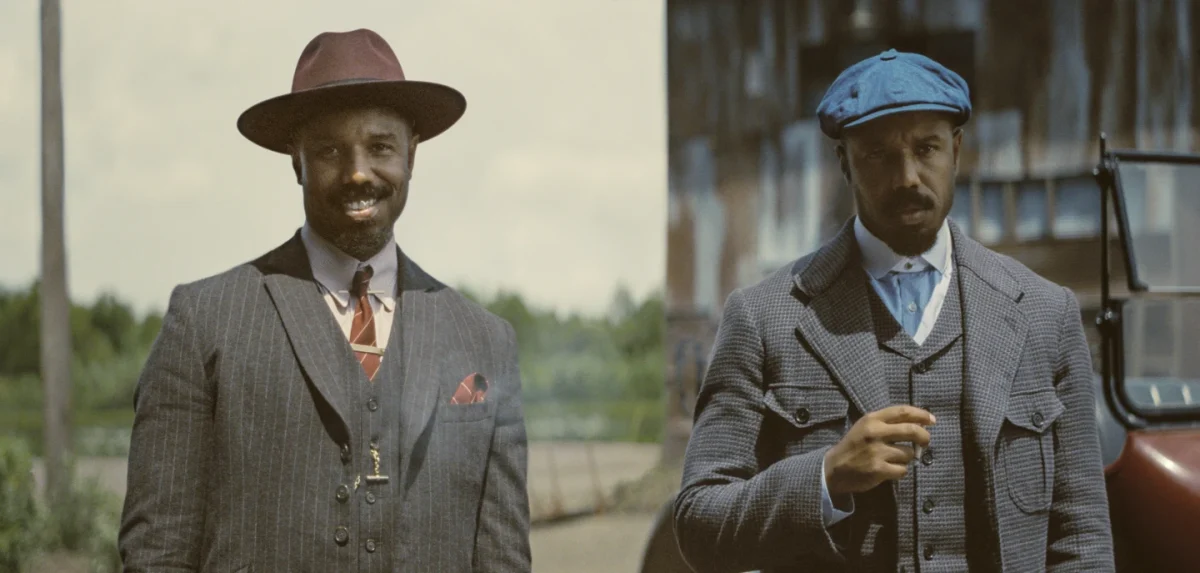Educating people about democracy is crucial for better governance, accountability and efficiency, according to Dr. James Pasley, Park University professor of political Science and associate dean for the school of social sciences.
“Democracy is dependent upon an active and informed citizenry,” Pasley says.
Pasley came to Park August 2006 but his teaching career started a decade ago at St. Leo University in Florida in 2000. After a year of teaching at St. Leo University, he did Fulbright Fellowship at the University of Quebec in Montreal, Canada, in 2001.
During his time in Canada, he was conducting research. Another year later, he moved back to the U.S. Shortly after his arrival, he found a job at the University of Science and Art of Oklahoma in 2002, and he taught at the same university for five years.
During the past 13 years, he has taught, researched and discussed fundamental political principles with the students. As a result, he believes education enhances students’ ability to think critically, he says.
“The key focus of my class is teaching students how to think critically,” Pasley says.
He says it is essential for students to understand core principles of democracy. During his seven years at Park University, many of the students he taught have gone to graduate school to get their master’s degrees in political science or international relations.
As a professor, he said he is proud to see his students pursuing higher education. At the same time, other students end up taking positions in state or local government, Pasley says.
Democracy requires educated citizens to work effectively and it empowers citizens to exercise their rights and demand political changes in their countries. However, lack of education weakens democratic systems, Pasley says.
“A poorly educated citizenry weakens democracy which opens the door for authoritarianism,” he says.
This breeds conflict and often it is the root of civil wars in some developing countries. Pasley argues that weak institutions open opportunities for corruption. This leads some politicians to embezzle public funds for self-enrichment.
To change this, political participation is the key to move the country in the right direction, he says. In other words, educated voters use their votes to achieve their political goals, Pasley says.
“It is difficult for democracy to work when a population is not educated,” Pasley says.
The educated voters can also urge their fellow citizens to support political leaders who propose better policies during national elections, he says. This includes campaigning for the candidates they support in order to win the elections, he says.
Education is a backbone not only for democracy but also for humans’ development, he says. Furthermore, building strong institutions reduces political corruption. This can lead to efficiency in the government’s policies.
“Policy makers in the developing world sometimes place the cart before the horse meaning that they focus more on creating democratic institutions rather than educating the citizenry,” Pasley says.
Pasley believes dozens of international students he has taught at Park may adopt democratic systems in their home countries. But he warns that higher illiteracy is an obstacle for democracy to succeed in some developing countries. Therefore, any country seeking to implement democracy, needs to educate its citizens in order to succeed, Pasley explains.
“The focus should be on creating literate citizenry because an educated population is more likely to ensure that democratic institutions will succeed and endure,” he says.
Political apathy in any country is a threat to democracy, he says.
“The danger of weak democracy is not limited to the developing world because even in highly literate societies disillusionment with politics can breed corruption in government,” Pasley.



